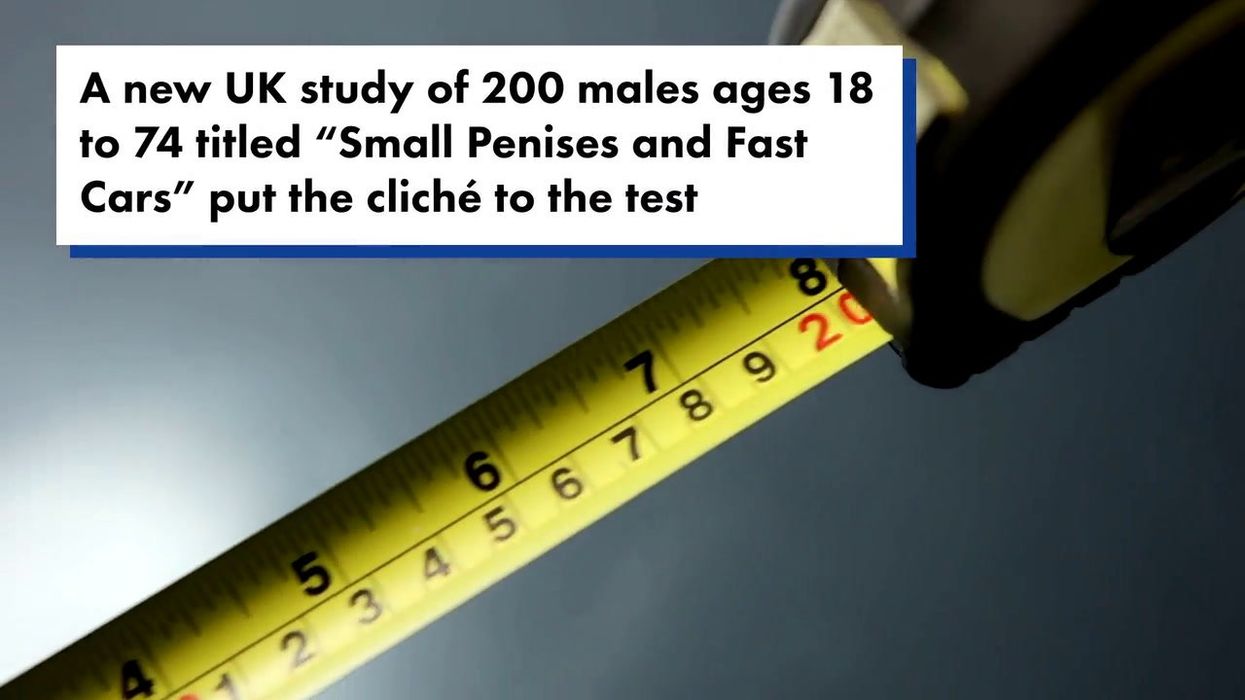Science & Tech
Ariana Baio
Feb 15, 2023
There's link between small penis size and sports cars, scientists say
content.jwplatform.com
A new study has found the average erect penile increased 24 per cent over the last 29 years but despite your initial reaction, it may not be good news.
The study, published in The World Journal of Men’s Health on Wednesday, was led by Michael Eisenberg, a professor of urology at Standford University, who believes the change is a reflection of our environment.
“Any overall change in development is concerning because our reproductive system is one of the most important pieces of human biology,” Eisenberg told Standford Medicine’s Scope.
Eisenberg said this increase happened over “a relatively short period of time” meaning a large change happened quickly.
Sign up for our free Indy100 weekly newsletter
“If we’re seeing this fast of a change it means that something powerful is happening in our bodies,”
The study evaluated data from 55,761 men from 1941 until 2021 to achieve their findings. Researchers found the increase occurred globally across all age groups.
While Eisenberg and the research team are unclear on what exactly is the cause for the change, they are raising alarm bells hoping their findings are confirmed so further research can be done.
But he does have his suspicions as to why the increase happened.
“Chemical exposure like pesticides or hygiene products interacting with our hormonal systems,” Eisenberg said. “These endocrine-disrupting chemicals, there are many, exist in our environment and our diet.”
He said chemical exposure is a possible case as to why boys and girls are going into puberty earlier as well.
But other lifestyle factors like living an increasingly sedentary life could be a factor.
Eisenberg and his team chose to take on the study to help better understand men’s reproductive health. While broad studies on declining sperm count and testosterone levels have been done, Eisenberg wanted to systematically study penile lengths to see if they correlated to other findings.
Have your say in our news democracy. Click the upvote icon at the top of the page to help raise this article through the indy100 rankings.
Top 100
The Conversation (0)














